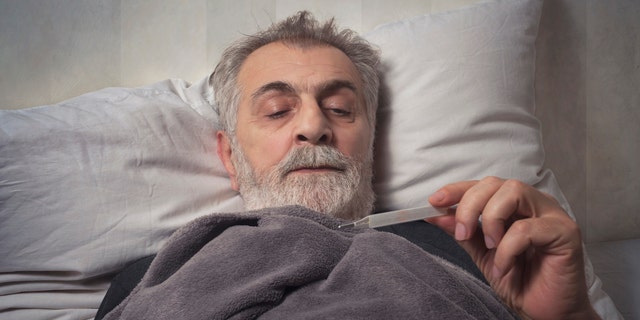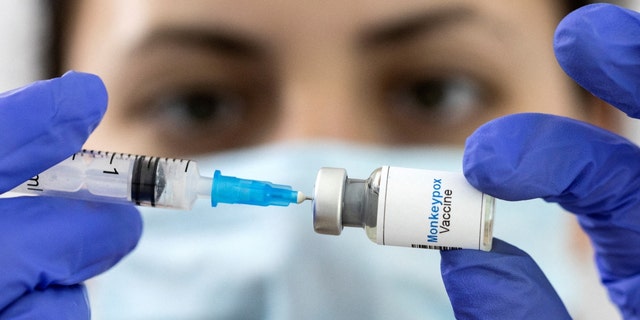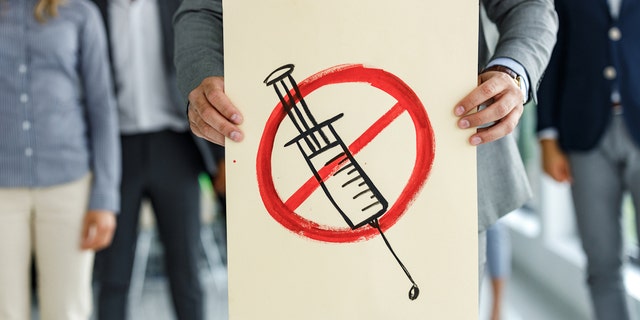Older Americans reject more vaccines, opt instead for ‘natural healing,’ says report
Many adults age 40 and older are opting to skip vaccine immunizations despite their general concerns about virus infections, as revealed in research that AARP has just published.
Among all adults who had not received a flu vaccine, only 32% said they would get the vaccination even if their doctor advised them to do so.
Among those who had not gotten the pneumonia vaccine, only 49% would get it if their doctor recommended it.
COVID VACCINE UPDATE: FDA AUTHORIZES PFIZER BOOSTER FOR SOME CHILDREN UNDER AGE FIVE
For the shingles vaccine, 56% of unvaccinated older adults would get the jab on their doctor’s advice.
The study, conducted on AARP’s behalf by Alan Newman Market Research Consultants (ANR), collected data from an online survey sent to 1,546 older U.S. adults between Oct. 3, 2022, and Oct. 12, 2022.
It also found that less than half of unvaccinated older adults would get vaccines for pertussis, hepatitis, monkeypox, tetanus, smallpox and diphtheria if recommended by a health care provider.
Black adults showed more willingness to get vaccines
The survey found that 46% of Black adults over age 40 would get a flu vaccine if their doctor recommended it.
The share rose to 63% for pneumonia and 66% for shingles.
SLEEP DEPRIVATION COULD REDUCE VACCINE ANTIBODIES, NEW STUDY FOUND
More than half of unvaccinated Black respondents would get vaccines for pertussis, hepatitis, monkeypox, tetanus, smallpox and diphtheria if recommended by a health care provider, the study also found.
Many fear getting sick from vaccines
The survey found that among midlife and older adults, the most common reason for not getting a flu vaccine was fear of getting sick from the shot, cited by 34% of respondents.
Another 29% of people simply said they don’t believe the vaccine is necessary.
Among those who don’t plan to get the pneumonia vaccine, 26% said they don’t need it and 25% are concerned about getting sick.

For those not getting the shingles vaccine, 27% said it’s not needed and 22% don’t think they would get the infection.
“I believe in natural healing and homeopathic treatments and trust that my immune system, with the support of these treatments, will keep me healthy, and I will not take pharmaceutical drugs,” said one 57-year-old female cited in the AARP report.
“I trust that my immune system will keep me healthy, and I will not take pharmaceutical drugs.”
However, older adults’ vaccine hesitancy doesn’t mean they’re not worried about getting sick.
Fifty-eight percent of survey respondents said they’re concerned about the flu, 53% are worried about contracting pneumonia, 49% are concerned about shingles and 43% expressed concern about monkeypox.
Fear of side effects, eroding trust are factors
Dr. Dung Trinh, an internal medicine specialist and owner and founder of the Healthy Brain Clinic in Long Beach, California, was not involved in the new study but outlined several key reasons patients refuse vaccines.

“Older adults may fear side effects or adverse reactions from the vaccine due to their age and health status,” he told Fox News Digital in an email.
“They may be more susceptible to developing complications such as fever, muscle aches and dizziness after receiving a vaccination,” he said as well. “In addition, they may have pre-existing conditions that can make them more vulnerable to serious side effects.”
“Older adults may fear side effects or adverse reactions from the vaccine.”
They may also feel they don’t need to get a vaccine because they have already received it in the past or because they’ve been exposed to the virus and built up an immunity, the doctor added.
FDA APPROVES FIRST AT-HOME TEST TO DETECT BOTH FLU AND COVID
There are also logistical reasons, such as a difficulty in making an appointment for a vaccine.
“For some, public transportation may not be an option, and they may not have access to a reliable ride,” said Dr. Trinh. “They may also experience difficulties due to language barriers or lack of familiarity with the booking process.”
Financial concerns and lack of health insurance could be another obstacle.

Older adults may be concerned about not only the cost of the vaccines, but also any associated doctor visits, Dr. Trinh said.
“It is important that these individuals know what resources are available to them and that adequate support is provided in order for them to access the vaccine if desired,” he also said.
“Hesitancy to get vaccinated is largely due to distrust of the medical establishment.”
Finally, older adults may have a lack of trust in the safety and effectiveness of vaccines as well as the medical community in general.

Dr. Marc Siegel, professor of medicine at NYU Langone Medical Center and a Fox News medical contributor, said he believes hesitancy to get vaccinated is largely due to distrust of the medical establishment among Latinos and other minorities, as well as confusing information delivered about the purpose of vaccination.
CLICK HERE TO SIGN UP FOR OUR HEALTH NEWSLETTER
“The report states that in the African American community, the majority trust their doctors, which means there is a much bigger need for doctors to fill that role and explain the risks and benefits,” he told Fox News Digital.
He was not involved in the new study.
“Unfortunately, with the COVID vaccines, the vast majority of shots were given by centralized locations and pharmacies, not by primary care doctors, which helped to erode trust,” Dr. Siegel also noted.
Read the full article Here


